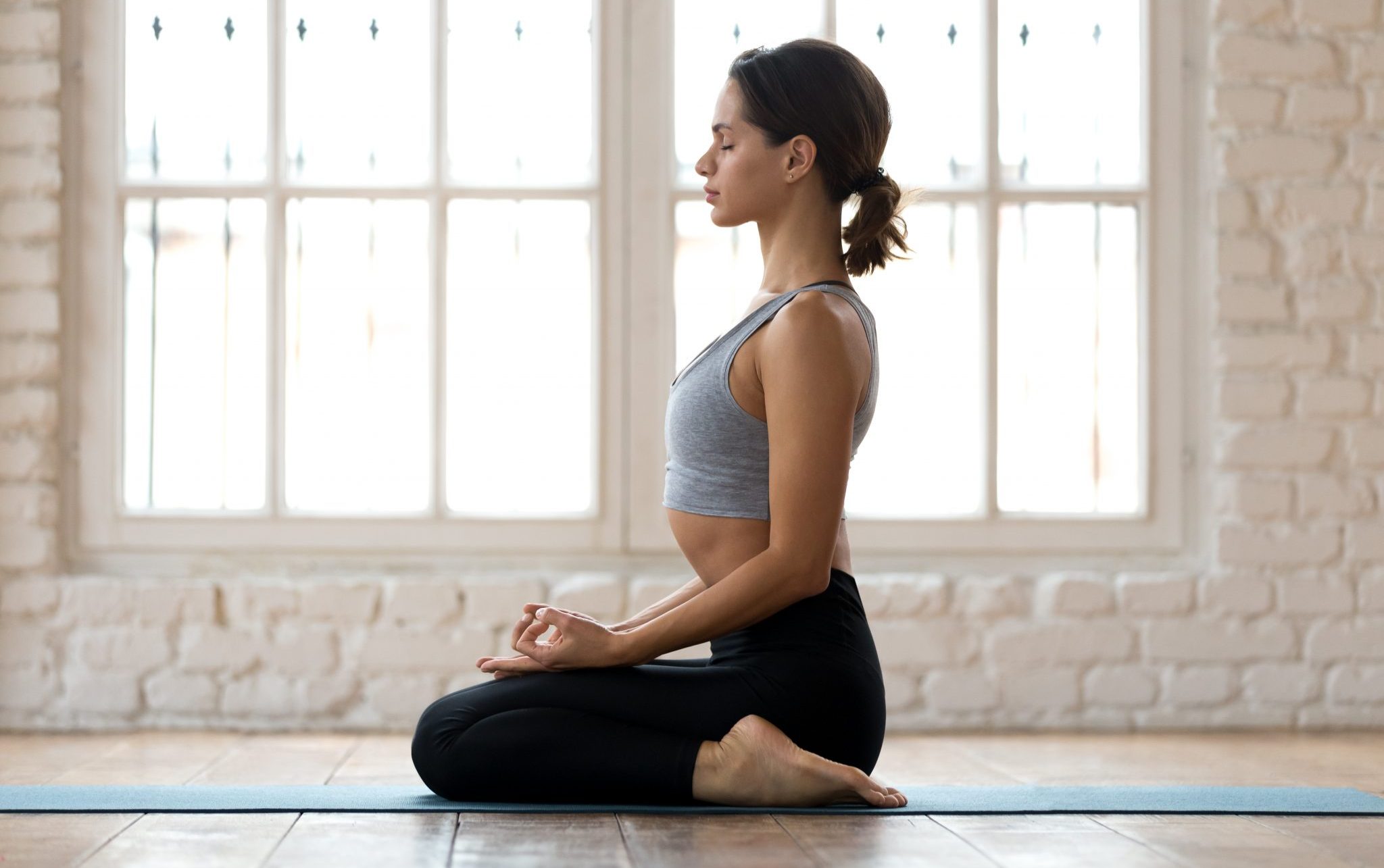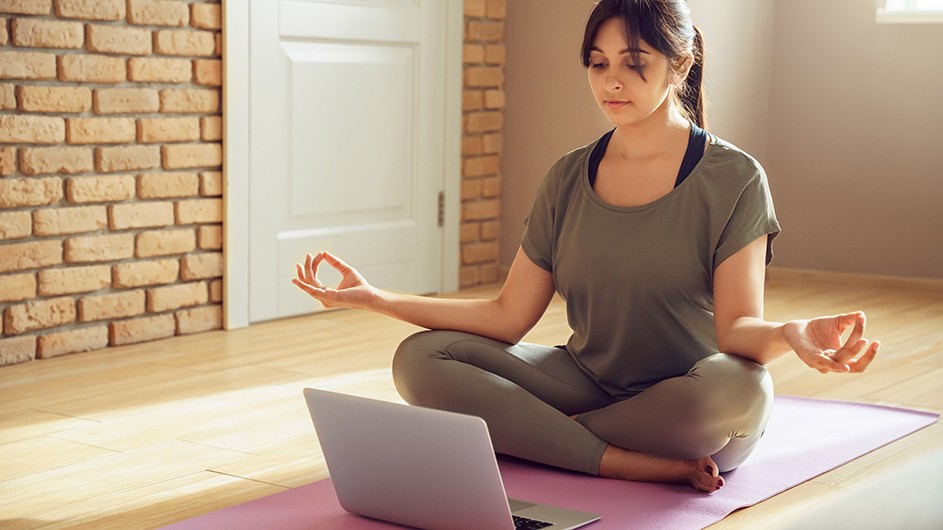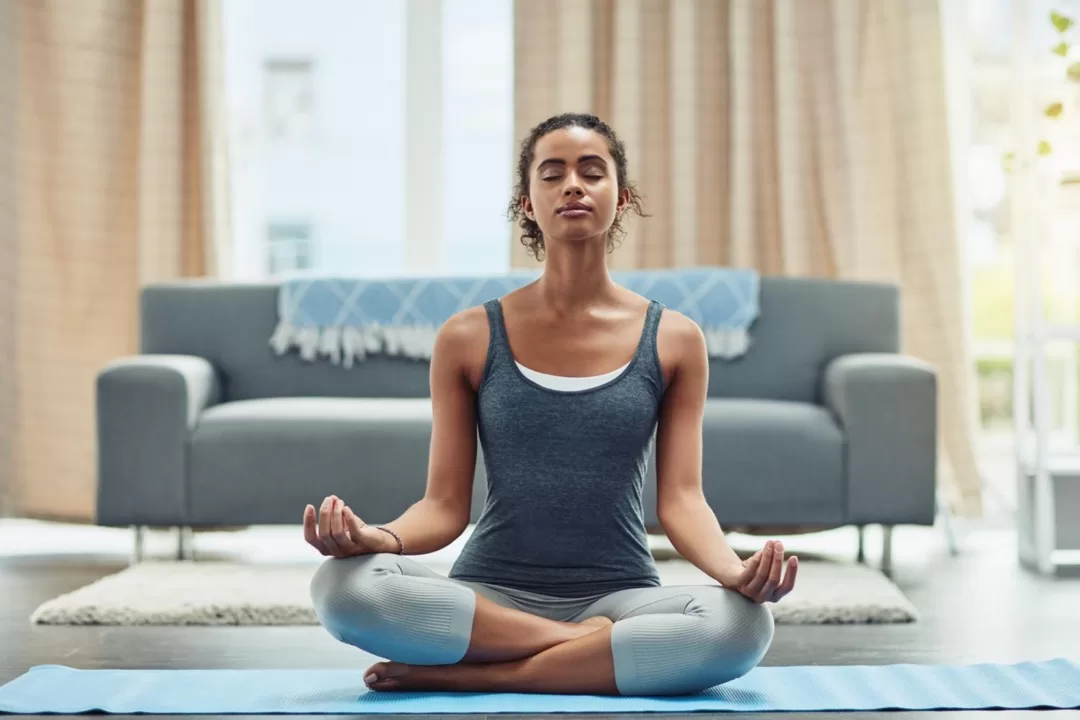Yoga is a powerful tool for managing anxiety, offering a natural and holistic approach to mental health. Through a combination of physical poses, controlled breathing, and meditation, yoga helps soothe the mind and reduce stress. In this guide, we’ll share the various benefits of yoga for those experiencing anxiety, detailing how specific practices can alleviate symptoms, improve emotional resilience, and foster a greater sense of calm.

Contents
- 1 20 Benefits Of Yoga For Anxiety
- 1.1 1. Reduces Stress Levels:
- 1.2 2. Promotes Relaxation:
- 1.3 3. Improves Breathing:
- 1.4 4. Enhances Self-Awareness:
- 1.5 5. Increases Strength and Flexibility:
- 1.6 6. Fosters Mind-Body Connection:
- 1.7 7. Offers a Sense of Community:
- 1.8 8. Improves Concentration:
- 1.9 9. Encourages a Healthy Lifestyle:
- 1.10 10. Provides Tools for Stress Management:
- 1.11 11. Increases Energy and Mood:
- 1.12 12. Promotes Better Sleep:
- 1.13 13. Teaches Present-Moment Awareness:
- 1.14 14. Reduces Physical Tension:
- 1.15 15. Enhances Emotional Resilience:
- 1.16 16. Lowers Blood Pressure:
- 1.17 17. Stabilizes the Autonomic Nervous System:
- 1.18 18. Increases Body Awareness:
- 1.19 19. Provides a Break from Negative Thoughts:
- 1.20 20. Encourages Patience and Acceptance:
- 2 Frequently Asked Questions
20 Benefits Of Yoga For Anxiety
Yoga is widely recognized for its holistic benefits on both the body and mind. Particularly for those experiencing anxiety, yoga can be a highly effective tool for alleviating symptoms. Here are 20 benefits of practicing yoga that specifically help with managing anxiety:
1. Reduces Stress Levels:
Yoga helps significantly reduce cortisol levels, the body’s primary stress hormone. Regular practice can calm the nervous system and mitigate the body’s stress response, contributing to a decrease in overall anxiety.
2. Promotes Relaxation:
Through its meditative practices, yoga encourages deep relaxation. By focusing on mindfulness and physical movements, yoga allows practitioners to engage in a restorative activity that eases the mind and body, helping alleviate the acute symptoms of anxiety.
3. Improves Breathing:
Yoga emphasizes controlled, deep breathing techniques, known as pranayama. These breathing exercises improve lung capacity and the efficiency of oxygen exchange, which directly influences the body’s stress response mechanisms, making them an effective tool for managing anxiety.
4. Enhances Self-Awareness:
Yoga encourages a deeper connection between mind and body through increased self-awareness. This practice helps individuals recognize the onset of anxiety symptoms early and apply techniques learned through yoga to manage them effectively.

5. Increases Strength and Flexibility:
Regular yoga practice builds physical strength and flexibility. Improving your physical condition can boost self-esteem and confidence, which are often compromised in individuals dealing with anxiety.
6. Fosters Mind-Body Connection:
Yoga teaches the alignment of body and mind, which can help address the physical manifestations of anxiety. A stronger mind-body connection enables individuals to exert greater control over their emotional and physiological responses to stress.
7. Offers a Sense of Community:
Many find that attending yoga classes creates a supportive community environment. This social aspect can reduce feelings of isolation and provide emotional support, which is beneficial for those suffering from anxiety.
8. Improves Concentration:
The focus required in yoga to maintain various poses and engage in mindful breathing helps improve overall concentration. Enhanced focus can divert attention away from anxiety triggers and towards a peaceful state of being.
9. Encourages a Healthy Lifestyle:
Yoga often encourages practitioners to engage in other healthy behaviors, such as better sleep habits and nutrition, both of which play a crucial role in managing anxiety and improving overall well-being.
10. Provides Tools for Stress Management:
Yoga equips individuals with practical tools to manage stress, such as meditation, breathing techniques, and physical postures. These can be utilized anytime to decrease acute anxiety in real-world situations.
11. Increases Energy and Mood:
Regular participation in yoga can increase energy levels and contribute to a more positive mood through the release of endorphins. Higher energy and mood improvement are key factors in combating anxiety.
12. Promotes Better Sleep:
Yoga can improve sleep quality due to its stress-reducing and energy-balancing benefits. Better sleep helps regulate mood and reduce anxiety levels, making it easier to cope with daily stressors.
13. Teaches Present-Moment Awareness:
Yoga encourages living in the moment and appreciating the present through mindfulness practices. This can significantly reduce the tendency to worry about future events, a common issue in those with anxiety.
14. Reduces Physical Tension:
Many yoga poses help release tension built up in the body, which is often a physical symptom of anxiety. Reducing muscle tension can lead to a significant decrease in overall anxiety levels.
15. Enhances Emotional Resilience:
Yoga can increase emotional resilience by improving the ability to cope with stress in a healthy way. This resilience is crucial for those with anxiety, as it helps them handle stressful situations more effectively.

16. Lowers Blood Pressure:
The relaxing effects of yoga can lower blood pressure, which is often elevated during anxiety attacks. Lower blood pressure can contribute to a feeling of calm and reduce the physical symptoms associated with anxiety.
17. Stabilizes the Autonomic Nervous System:
Yoga helps balance the autonomic nervous system, which controls the body’s response to stress. A well-regulated nervous system can reduce the physiological reactions that are often exaggerated in anxiety.
18. Increases Body Awareness:
Regular yoga practice increases body awareness, helping individuals detect the early signs of anxiety and apply relaxation techniques before symptoms escalate.
19. Provides a Break from Negative Thoughts:
The meditative aspect of yoga offers a mental break from persistent negative thoughts, which are common in anxiety disorders. Redirecting thoughts during yoga can provide a refreshing mental reset.
20. Encourages Patience and Acceptance:
Yoga teaches patience and acceptance, virtues that can help manage frustration and avoid the negative thought cycles that fuel anxiety. This can lead to a more balanced perspective on life’s challenges and stresses.
Frequently Asked Questions
1. What is the role of yoga in managing anxiety?
Yoga integrates techniques such as deep breathing and meditation, often leading to a more relaxed state of mind. It enhances mental clarity, creates calmness, relieves long-term stress, improves mindfulness, and sharpens concentration, hence acting a promising approach for anxiety control.
2. How quickly can yoga relieve anxiety?
Numerous studies affirm yoga’s effectiveness in anxiety treatment, with reports of noticeable improvement in mood and anxiety reduction following a consistent 12-week yoga routine. Therefore, it might take a few weeks of regular practice to experience the benefits.
3. Can yoga curb overthinking?
Yoga fosters attention to the present moment and awareness, which are critical in keeping overthinking at bay. A regular yoga practice helps break the pattern of excessive rumination about the future or past and thereby reduces anxiety and stress.
4. Why does yoga induce calmness?
Practicing yoga stimulates the parasympathetic response of our nervous system, resulting in a state of calmness. Yoga’s mindfulness, relaxation techniques, and controlled breathing exercises foster inner peace and provide extensive health benefits.
5. How soon can physical transformations be experienced with yoga?
Depending on one’s fitness level and dietary habits, physical changes due to yoga may be visible within a few months. Consistent yoga practice of 30-minute sessions thrice a week can result in muscle toning and strength increase in two to three months.

Hello, I’m Ravindra. Over the years, I’ve immersed myself deeply into the world of fitness and health, transforming both my body and mind. Writing has allowed me to share my journey, insights, and expertise with those just starting out and seasoned fitness enthusiasts alike. Beyond just routines and diets, I believe in inspiring others to adopt a holistic approach to well-being.
